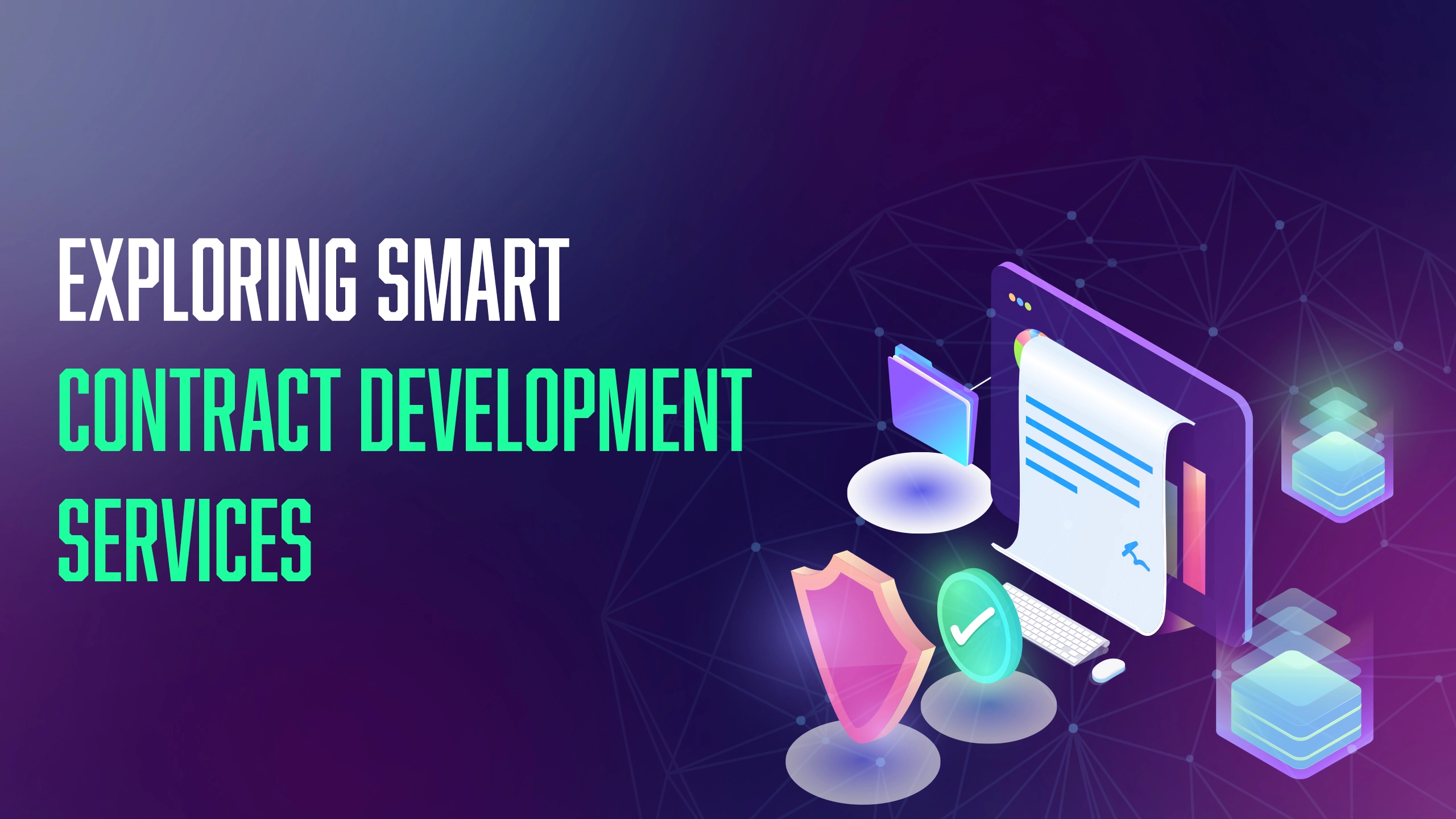In recent years, blockchain technology has disrupted various industries by offering transparency, security, and efficiency in record-keeping and transactional processes. At the heart of this revolution lies smart contracts, self-executing agreements with predefined rules and conditions encoded on a blockchain. Smart contract development services have emerged as a crucial element in leveraging the power of blockchain technology, enabling businesses and individuals to automate processes, enhance security, and create trustless environments.
Understanding Smart Contracts:
A smart contract is a piece of code that is stored and executed on a blockchain network. It operates based on predefined conditions, ensuring that the agreed-upon terms are met without the need for intermediaries. Built on the foundation of blockchain’s decentralized nature, smart contracts offer several advantages over traditional contracts, including:
1. Autonomy and Reliability: Smart contracts eliminate the need for intermediaries, such as lawyers or brokers, reducing the risk of errors, delays, and manipulation. The code executes automatically, ensuring that the terms are enforced as intended.
2. Transparency and Auditability: Smart contracts are recorded on a public blockchain, providing a transparent and immutable record of all transactions. This transparency increases accountability and reduces the potential for fraud.
3. Efficiency and Cost Savings: By automating processes, smart contracts streamline operations and reduce the need for manual intervention. This automation leads to cost savings, faster execution times, and increased operational efficiency.
4. Trust and Security: Smart contracts leverage the security features of blockchain technology, such as encryption and decentralized consensus mechanisms. The tamper-proof nature of blockchain ensures that transactions are secure and protected from unauthorized modifications.
The Role of Smart Contract Development Services:
Smart contract development services play a crucial role in facilitating the creation, deployment, and maintenance of smart contracts. These services offer expertise and technical know-how to ensure that the smart contracts are robust, secure, and aligned with the desired objectives. Here are some key aspects of smart contract development services:
1. Consultation and Requirement Analysis: Smart contract development services work closely with clients to understand their specific needs and objectives. They provide consultation on the feasibility, potential use cases, and benefits of implementing smart contracts in their business processes.
2. Design and Development: Smart contract development services assist in designing the architecture and logic of the smart contracts. They write and test the code, ensuring that it is error-free, efficient, and adheres to best practices. These services often use programming languages such as Solidity (for Ethereum) or Vyper to develop smart contracts.
3. Security Audits: Given the criticality of smart contracts, security audits are an essential component of the development process. Smart contract development services conduct comprehensive audits to identify vulnerabilities, bugs, or potential security risks. This helps in fortifying the smart contract against potential attacks and ensures that it operates as intended.
4. Integration and Deployment: Smart contract development services assist in integrating the smart contracts with the desired blockchain network. They ensure compatibility and seamless deployment, whether on public blockchains like Ethereum or private blockchains tailored for specific use cases.
5. Maintenance and Upgrades: Smart contracts require periodic maintenance and updates to address any bugs, optimize performance, or incorporate new functionalities. Smart contract development services offer ongoing support to ensure the longevity and efficiency of the deployed smart contracts.
Benefits and Use Cases:
The utilization of smart contract development services can bring numerous benefits across various sectors. Some notable use cases include:
1. Supply Chain Management: Smart contracts can automate and streamline supply chain processes, enhancing transparency, traceability, and reducing paperwork. They can facilitate automated payments, track shipments, and enable secure verification of product authenticity.
2. Financial Services: Smart contracts can revolutionize financial transactions by enabling secure peer-to-peer lending, decentralized exchanges, and automated payment systems. They can ensure the execution of loan agreements, eliminate the need for intermediaries in financial transactions, and enforce compliance with regulations.
3. Real Estate: Smart contracts can facilitate property transactions by automating the transfer of ownership, managing rental agreements, and enabling fractional ownership. This can increase efficiency, reduce fraud, and simplify the cumbersome processes involved in real estate transactions.
4. Intellectual Property: Smart contracts can streamline copyright and royalty management by automating payment distribution, enforcing licensing agreements, and providing an auditable record of intellectual property transactions.
Conclusion:
Smart contract development services play a pivotal role in unlocking the potential of blockchain technology. By leveraging the automation, security, and transparency offered by smart contracts, businesses can streamline operations, enhance trust, and create new avenues for value creation. As the adoption of blockchain continues to grow, smart contract development services will continue to evolve, offering innovative solutions across various industries and revolutionizing the way we transact and interact in the digital world.




